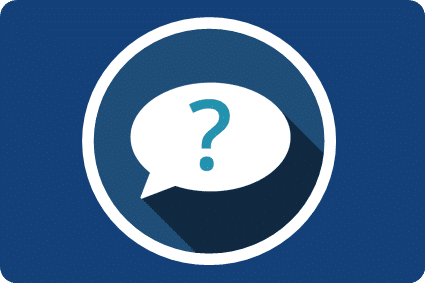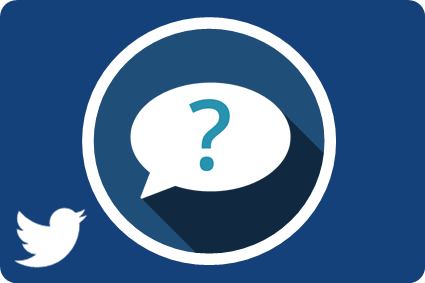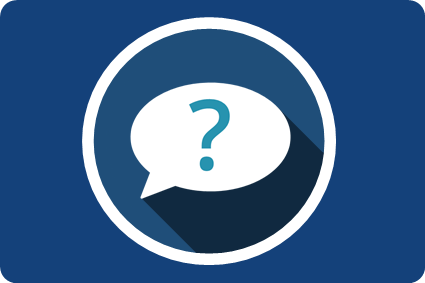BLOGS
6 Essential Questions to Ask About Your Assets

Equipment assets are a vital part of any business; a company simply cannot run without them. Whether IT servers or fork-lift trucks, warehouse shelving to stationary, these are the things our business needs so we can do our jobs properly.
There are many ways to acquire your assets so it is important to take time to plan and budget your asset procurement or else you could lose out savings opportunities. Once you’ve decided you definitely need the equipment, there are some questions you should ask to ensure you get the best deal and funding for your assets.
How long do you actually need the asset?
5 years? 10 years? Maybe just a few months? If your company only needs an asset for a short period of time, it may be worth setting up a short-term lease agreement rather than forking out the money to buy it. You wouldn’t buy a train just to make one journey so why buy an asset that you soon won't have any future need for?
However, if you need your assets for a while, it might be worth taking the plunge and entering a long-term commitment with your equipment by either purchasing them out-wright or arranging a long-term lease. Assets should be an investment, not a burden so you should always have a plan for what to do with them when they’re no longer needed: return them to the supplier, sell them on, recycle the parts or use them as doorstops - the choice is yours. Just make sure you don't end up spending thousands on what will effectively be as useful as a paperweight after a year.
Does the asset need to be new?
It may seem a given that newer is better, but that is not always the case. You could save yourself a great deal of money if you procure you assets pre-owned. Although it's true that you can't teach an old dog new tricks and technological assets like laptops and mobiles need to be up-to-date, but you have to ask yourself - do you really need a brand new, shiny, top of the range fork-lift truck for moving around a few boxes in a warehouse?
It’s worth your while to look into used equipment and the cost benefits of sacrificing that new car smell. You can get great deals on new items through leasing or buying, but there is no point in spending more than you need to, especially if it’s for an asset you only need for a short period of time.
What are your financing options?
Where is the money coming from to pay for your assets? Although you may avoid paying interest with an immediate purchase of an asset, you need to ask if it is viable or proficient to invest a large bulk payment.
There are numerous ways to fund a project, from loans to sponsorship to simply tightening the purse strings elsewhere to free up expenses, each coming with their own problems and conditions so it is important to review them all before rushing out to buy something. Keep in mind how soon you need to the asset and how your payment strategy will affect company budgets.
It may be within your best interests to set up a lease agreement and spread the cost of the asset over its economical lifespan. There are several variations of lease agreements –finance leases, hire purchase, contract hire, among others – which are tailored to suit your company's needs. This gives you multiple options in deciding how much you pay, over what period of time as well as the opportunity to negotiate benefits such as full ownership at the end of the lease agreement or included maintenance coverage. There are a number of alternatives to asset finance and without proper research, you could end up losing out on a much better, more suitable deal for your asset funding.
Do you need ownership of the assets?
Ownership comes with a plethora of benefits:
- You have the control over who uses the equipment and what for.
- You have the power to sell or lease the assets.
- You don't have to ask permission from anyone to make any changes to the asset.
Many people would naively see full ownership as the only viable option, but ownership responsibility also comes with many pitfalls. You may get the freedom over the equipment, but this also means that any damages or breakdowns are also up to you to sort out. That also means that when you’ve finished with the asset, you are responsible for its ethical disposal. This may be of benefit to your company, but can also create a lot of unnecessary hassle with insurance, dumping costs or resell negotiations.
Some leases place this responsibility onto the lessors, relinquishing you from the burdens of ownership, whilst still giving you the benefits of using the asset. Many arrangements even give you the option to purchase the asset at a reduced price after you've seen whether you really need it or not. We borrow pens from our colleagues all the time and even though they aren't technically ours, the job still gets done and we can give them back when we've finished with our doodles. Don’t be so quick to reject “borrowing” an asset as it could save you a lot of problems and hassle down the line.
How long will the asset keep its value?
With today’s technological advances happening in the blink of an eye and mobile phones becoming as “out-dated” as floppy disks within a couple of months, it is vital that you look into the value lifespan of the assets you want to procure.
Computers and technology are regularly evolving and a model that could seem like a bargain investment early on, could very quickly become obsolete. You do not want to spend a fortune on laptops that will become worthless when a new model comes out later in the year. Unfortunately, this is unavoidable in most cases so you need to consider the alternative methods of asset procurement as it is impractical and expensive to purchase anew asset every time a new model is released.
Many leases allow you to upgrade your leased assets, meaning you can keep on trend and running at your best, without having to sacrifice updates. Some assets hold their value, allowing you to really get your money’s worth. If they are re-usable or can be resold at a high price, you could get even more money by passing on the equipment when you've finished with it. If you plan to follow this route, it is even more important to find out how long your asset will remain valuable in order to avoid any warehouses packed full of old equipment.
How does this affect taxes?
What can be deducted from your tax payments? Both buying and leasing have the potential to be written off of your tax return, so it’s well worth your while to look into where you can reclaim some money. Always a topical issue, it's important to make sure that you are not breaking any rules with your tax claims, so make sure that you know your rights on what is and isn't classified as CAPEX. With the new lease accounting standards imminent, you need to be aware of what is required of you to successfully comply with the rules for operating and finance leases. If you’ve done your research and you’re willing to do the paper work, you could expect a nice tax rebate through the post.







.png)




